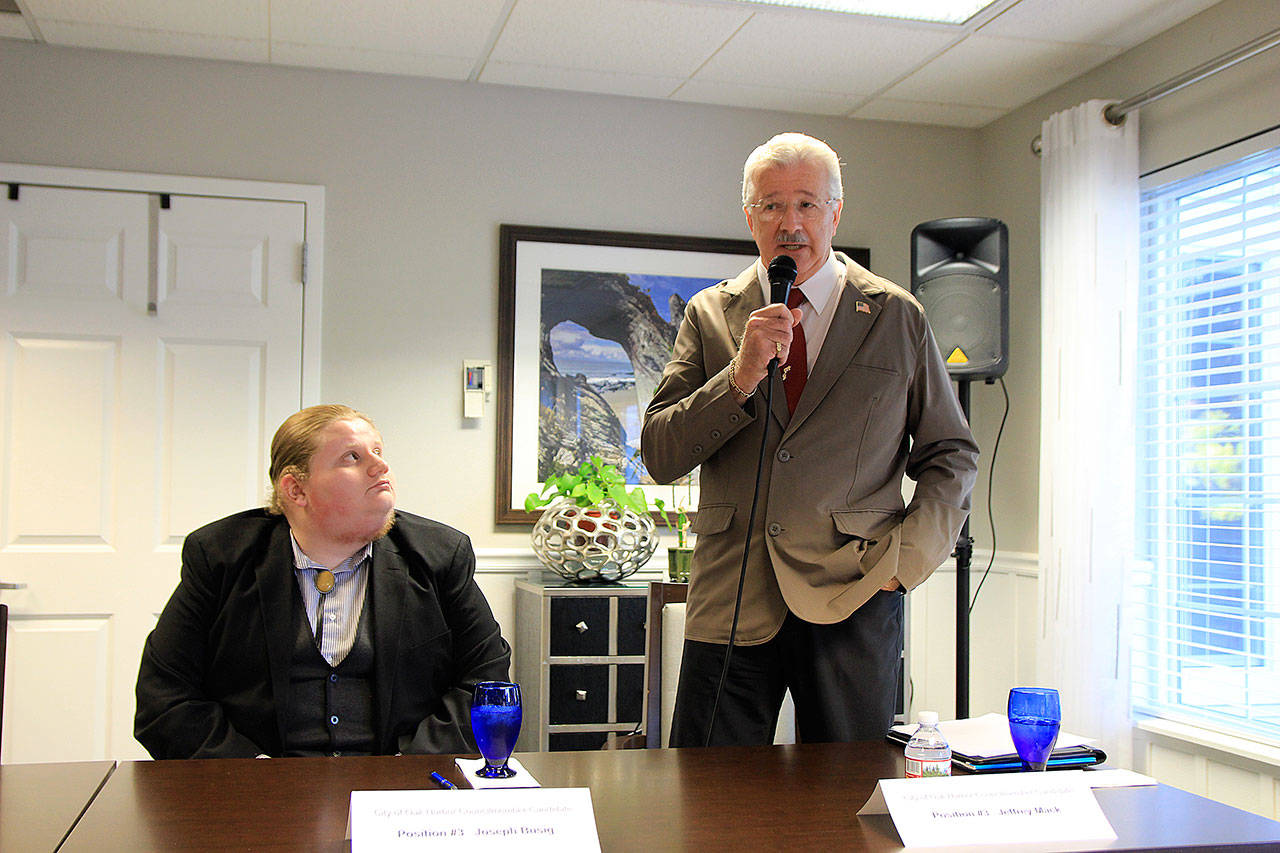During a forum Monday morning, two candidates for Oak Harbor City Council continued their focus on the importance of development.
Michael Crawford and Jeffrey Mack offered complementary messages during the question-and-answer session at Regency on Whidbey, an assisted living facility. They had both talked about the importance of growth and development at an Oak Harbor Chamber of Commerce forum Sept. 19.
Joseph Busig, Mack’s challenger, was also on message, promising to be the missing blue-collar voice on the council.
“I want to make sure everybody is heard when decisions are made,” he said.
Councilwoman Tara Hizon, who’s facing Crawford, wasn’t able to attend.
Crawford and Mack spoke about the need for change in several areas. They both indicated that the city has been an impediment to development.
“The city actually works against you when you want to remodel a commercial building,” Mack said, adding that business people get frustrated and go elsewhere.
Crawford said the city needs to work with capital investors who want to build in the city.
“Growth is one of the main factors that needs to happen for the city to get back on track,” he said.
Busig had a different take on the issue, saying that development needs to be focused on building work-force housing that is near transit stops.
“We need to grow and we need to do so in an equitable way,” he said.
Mack said growth should consist of homes in all income brackets. In addition, he said he wants to lower utility rates and work with Island County to expand the Urban Growth Area.
Crawford said public safety is one of his priorities. He said it was “appalling” to see the police chief and fire chief beg the council for funding.
Busig spoke about the importance of diversifying the economy, particularly in ways that create living-wage jobs. He suggested that the community could invest in green energy, which helps the environment while creating good jobs.
Near the end, Crawford created some confusion with a misunderstanding about a ballot measure to raise sales taxes for repair and maintenance of city streets.
Crawford inaccurately claimed that the city would retain only 1 percent of the amount that would be collected over ten years — only $9,000 — if a measure to raise sales tax to fix city streets is passed, and the state would get the rest. In actuality, the city would collect and retain an estimated $997,000 from the two-tenth of 1 percent sales tax over a decade, according to officials from the state Department of Revenue and the city of Oak Harbor.
Under state law, a city may impose a sales tax of up to one-tenth of 1 percent on sales receipts, minus small administravtice fees to the county and state — not 1 percent of the total sales tax collected. For the current ballot measure, a taxing entity called a transportation benefit district — which is controlled by the city council — is asking for a sales tax increase to fund street improvements. The funds would be segregated and only used for street repair and maintenance.



